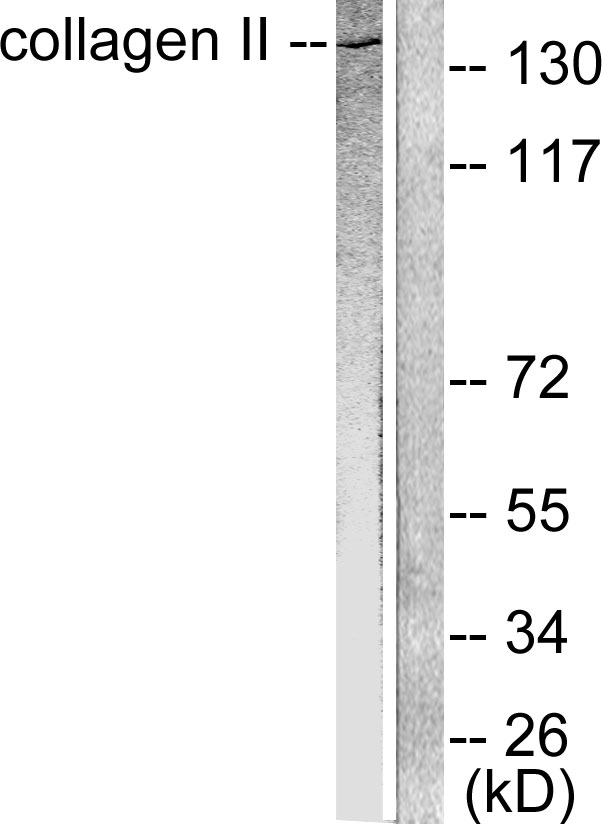Collagen II antibody [CIIC1]
GTX54398
ApplicationsFunctional Assay, ELISA, ImmunoHistoChemistry, ImmunoHistoChemistry Frozen, ImmunoHistoChemistry Paraffin
Product group Antibodies
ReactivityChicken, Equine, Mouse, Primate, Rat
TargetCol2a1
Overview
- SupplierGeneTex
- Product NameCollagen II antibody [CIIC1]
- Delivery Days Customer9
- Application Supplier Note*Optimal dilutions/concentrations should be determined by the researcher.Not tested in other applications.
- ApplicationsFunctional Assay, ELISA, ImmunoHistoChemistry, ImmunoHistoChemistry Frozen, ImmunoHistoChemistry Paraffin
- CertificationResearch Use Only
- ClonalityMonoclonal
- Clone IDCIIC1
- Concentration100 ug/ml
- ConjugateUnconjugated
- Gene ID12824
- Target nameCol2a1
- Target descriptioncollagen, type II, alpha 1
- Target synonymsCol2, Col2a, Col2a-1, Del1, Dmm, Lpk, M100413, Rgsc413, Rgsc856, collagen alpha-1(II) chain, alpha-1 type II collagen, chondrocalcin, procollagen, type II, alpha 1
- HostMouse
- IsotypeIgG2a
- Protein IDP28481
- Protein NameCollagen alpha-1(II) chain
- Scientific DescriptionThis gene encodes the alpha-1 subunit of the fibril-forming type II collagen, the major component of cartilage and the vitreous humor of the eye. The encoded preproprotein forms homotrimeric, triple helical procollagen that undergoes proteolytic processing during fibirl formation. Mice harboring certain mutations in this gene exhibit severe chondrodysplasia characterized by short limbs and trunch, craniofacial deformities and cleft palate. A complete lack of the encoded protein in mice results in postnatal lethality. Alternative splicing results in multiple transcript variants encoding different isoforms that may undergo similar proteolytic processing. [provided by RefSeq, Dec 2015]
- ReactivityChicken, Equine, Mouse, Primate, Rat
- Storage Instruction2°C to 8°C
- UNSPSC41116161


